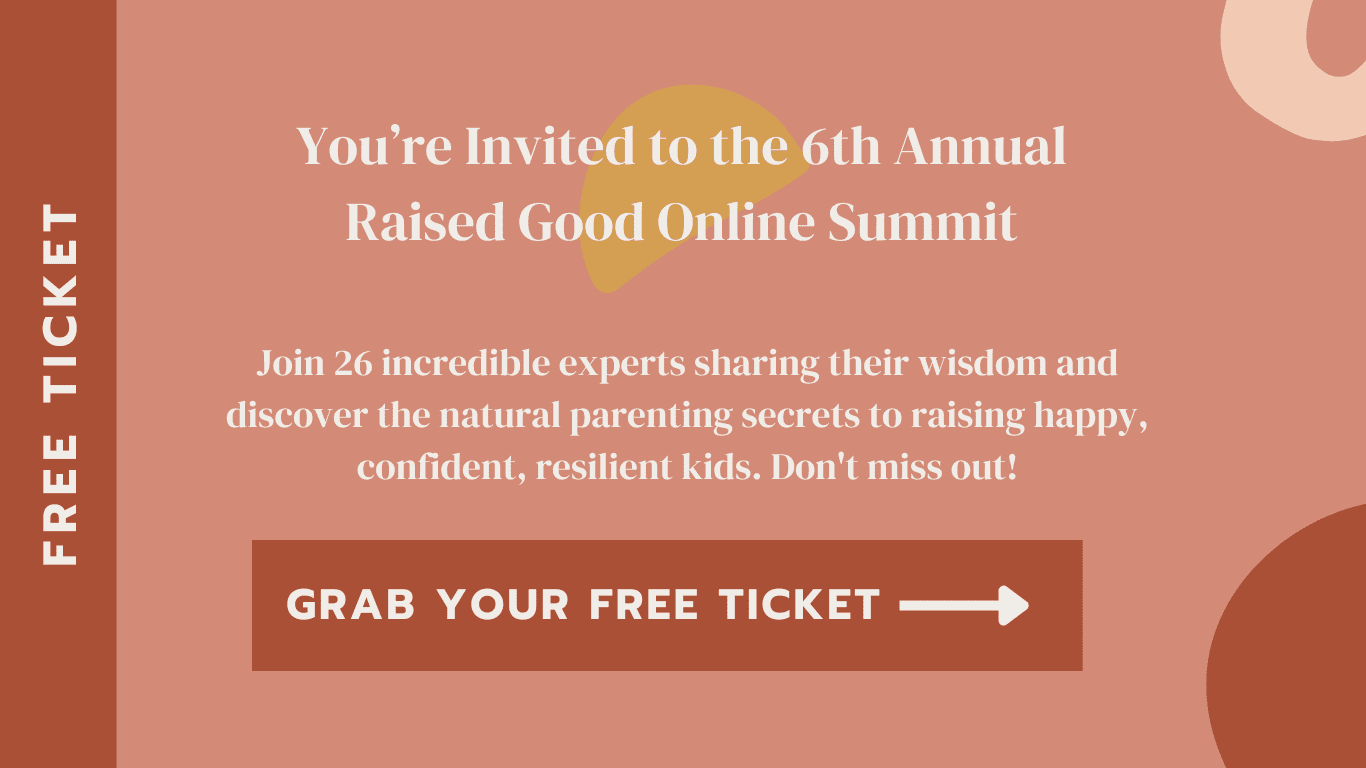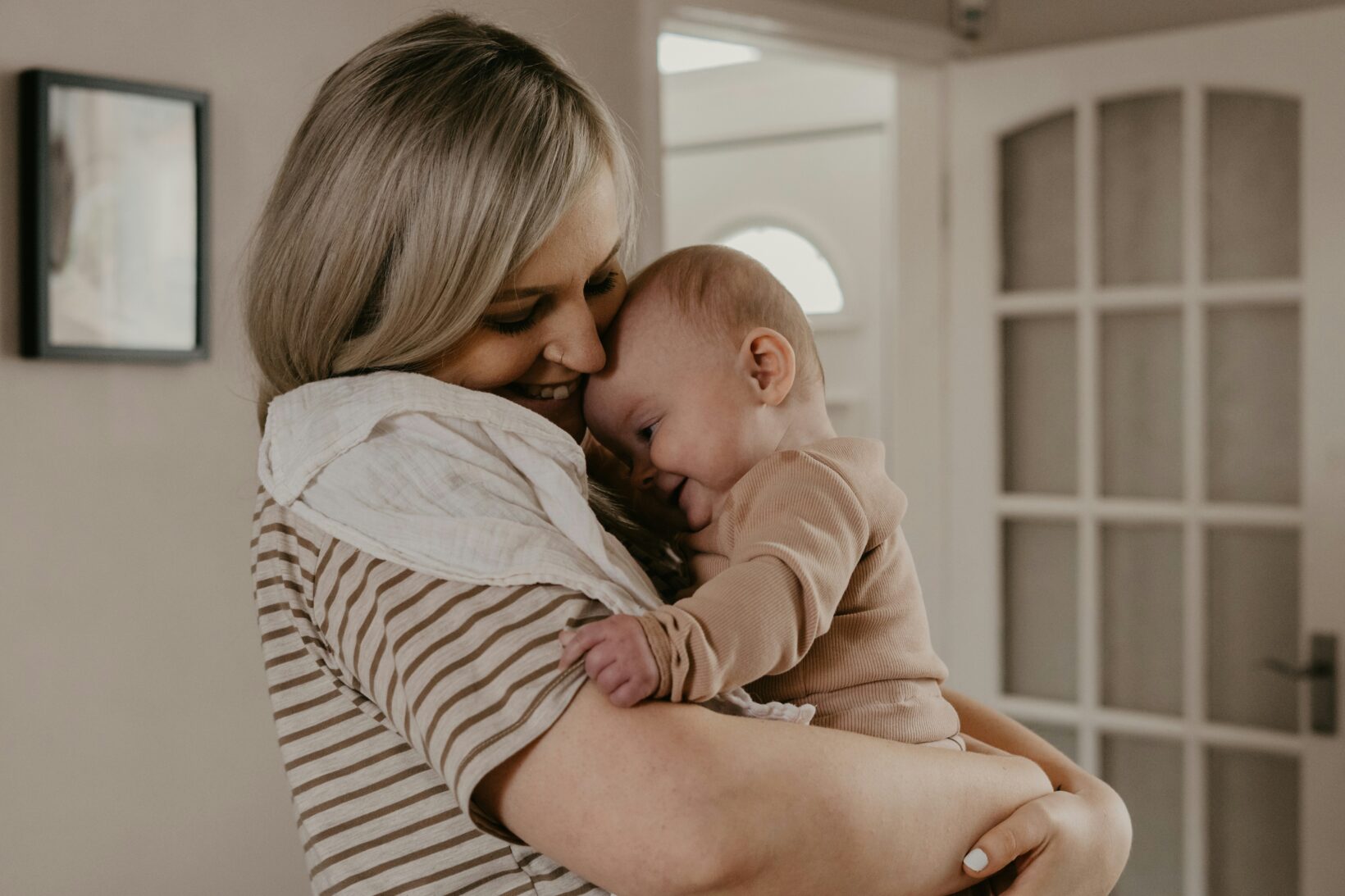It’s 3am and your baby stirs beside you.
Her little body shifts closer, seeking your warmth.
Half asleep, you guide her to your breast, feeling that newly familiar tug of milk letting down as she latches.
In the darkness, her breathing synchronizes with yours, and she drifts back to sleep.
This is how it’s supposed to be. Your body knows it. Your baby knows it.
But even in this peaceful moment—even as every cell in your being tells you this is exactly right—the voices creep in.
“You’re creating bad habits.”
“She’ll never learn to sleep on her own.”
“You’re making her too dependent.”
These messages have burrowed so deep that doubt can find you even here, in the sacred quiet of responding to your child’s needs.
Meanwhile, the same people offering this advice will spend the next hour scrolling their phones because they can’t fall back asleep without stimulation. Without distraction. Whatever it takes to help their own nervous systems settle.
But somehow, your eight-week-old is supposed to figure this out alone.
The contradictions are everywhere once you start seeing them.
We’re told to teach independence to babies who are biologically wired for complete dependence.
We’re encouraged to ignore our children’s nighttime calls while being sold products designed to replace our presence—mechanical straightjackets that mimic our movement, white noise that mimics our heartbeat, pacifiers that mimic our breasts.
But here’s the deeper irony: we expect our babies to intuitively know how to regulate their emotions in a world full of adults walking around in grown-up bodies who never learned how to do it themselves.
Here’s what’s really happening: We live in a culture that’s terrified of authentic emotion.
The same society that medicates toddlers, avoids conflict, and numbs discomfort expects babies to self-regulate alone in dark rooms.
We’re asking our children to do what we’ve never learned ourselves.

What the Science Actually Says
The research is clear, and it contradicts nearly everything our culture tells us about babies and sleep and comfort.
Children who are comforted develop better emotional regulation because, in doing so, you’re literally building the neural pathways they need to do it themselves. Every time you soothe your baby to sleep, every gentle response to their distress, you’re the architect of pathways forming in their developing brain—pathways they’ll one day be able to walk alone.
Babies who are responded to consistently become more independent, not less.
When we meet their needs reliably, we’re not creating dependency—we’re teaching them it’s safe to lean on us as parents and we’re building the secure foundation that allows for healthy autonomy later.
Nursing to sleep isn’t a “bad habit”—it’s how human babies are designed to fall asleep. The hormones released during nursing naturally promote sleep for both mother and baby. We’re literally working with biology, not against it.
Co-sleeping isn’t spoiling—it’s how most of the world sleeps and how humans evolved to sleep. The terrible, horrible, no good, very bad idea that babies should sleep alone is a historical blip, not a biological imperative.
The Wisdom of Maternal Instinct
But beyond the science, beyond the studies and the experts and the contradictions, there’s something else at play here. Something older and deeper and more reliable than any parenting manual.
Your instincts.
That pull you feel toward your crying baby? That’s not weakness—that’s biology working exactly as it should.
That desire to comfort, to hold, to nurture? That’s not spoiling—that’s love in its purest form.
You know, in your bones, what your baby needs. You can feel it in the way your heart races when they cry, in the way your arms ache when they’re not holding them, in the way your whole nervous system relaxes when they’re close.
This knowing isn’t something to be overridden by cultural expectations. It’s something to be trusted and preserved.
Here’s What They Don’t Tell Us
This time is so incredibly short.
The baby who needs to be rocked to sleep will, sooner than you can imagine, be the child who kisses you goodnight and closes their door.
The toddler who climbs into your bed will become the teenager whose feet hang off the end of it.
That indent in your bed where their little body sleeps? It will fade.
The way they curl into the crook of your arm will be just a memory.
The sweet weight of their head on your shoulder will become a treasure you’d give anything to feel just one more time.
You’ll miss the night wakings, mama (believe me!).
You’ll miss being needed with such pure, uncomplicated intensity.
You’ll miss being someone’s entire world, their source of comfort and safety and love.

Trusting Your Knowing
So when they tell us, let’s remember what we know.
We know that our baby’s cry at 2am isn’t manipulation—it’s communication from a little one who has no other way to tell us they need us.
We know that the warm weight of a sleeping child against our chest isn’t creating dependence—it’s building the security that will one day allow them to venture confidently into the world.
We know that nursing a toddler to sleep isn’t weakness—it’s honoring a biological relationship that has sustained our species for millennia.
We know that answering their calls in the darkness isn’t creating neediness—it’s showing them that love doesn’t have business hours.
We know that love never spoils.
We know that comfort is a need.
We know that responding to our children teaches them they matter, that they’re worthy of our care, that they can trust the world to hold them.
We know that meeting their needs now builds the foundation for their ability to meet their own needs later.
We know that parenting with our hearts wide open might be exhausting, but it’s not wrong.
They will tell us. They always have. They probably always will.
But in the quiet moments—when your baby finally settles against your chest, when your child’s breathing deepens as they drift off in your arms, when you look down and feel that overwhelming rush of love—in those moments, let the noise of the world fall away.
And all that will be left is your knowing.
Trust that knowing deep in your bones—grab it, hold it close and protect it fiercely. Because that’s your power, and it’s unshakeable.
When you stay rooted in that power, the doubt can’t reach you. Your confidence becomes your child’s safety, your certainty becomes their security.
So trust it, mama. Trust yourself. Trust your baby. Trust this relationship that belongs to you and them and no one else.
Because at the end of the day, they can tell us all they want. But we know.
And our knowing is everything.


Comments